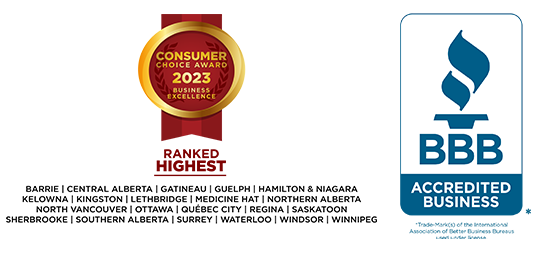Why Its Important To Pay Off Your Debts Before Retirement
The number of Canadians aged 65 and older is increasing rapidly. By 2030, they will make up more than one quarter of the country’s population. As millions of people begin contemplating retirement, they face questions of whether and how they can handle the financial burden of living on a fixed income.

Standing in their way is a less than optimistic outlook on Canadians’ financial situations. Households are carrying more debt than at any other point in history. Not including mortgages, the average person now owes more than $22,000. At the same time, many are living paycheque to paycheque and nearly half are within $200 per month of not being able to pay their monthly bills. As interest rates begin to rise, the added pinch of higher mortgage and credit card payments means many will lack the resources they need to pay down their debts and prepare for the next phase of their lives.
Financial Wellness
More than paying off all your debts prior to retirement, financial wellness is about personal empowerment and setting yourself up for a prosperous and comfortable post-career life. According to the Conference board of Canada, it requires “long-term planning… taking into account, retirement, investments, insurance, education and estate issues.” It also requires “short-term planning… such as day-to-day cash flow and debt management.” As the key to a smooth retirement transition, every person should be looking at their financial wellness to understand what factors will promote or inhibit a quality life experience in their later years.
Government and Workplace Pensions
Canada Pension Plan (CPP)
Under the existing Canada Pension Plan (CPP) rules, the amount of an individual’s benefit will be based on how much and for how long the individual contributed to the CPP. The more they contributed and the longer they contributed, the more they will be eligible to receive. In most cases, people will begin receiving CPP benefits at age 65. While there are certain circumstances where funds can be withdrawn earlier or deferred until age 70, the benefit received would be increased or decreased correspondingly.
Old Age Security (OAS)
Unlike CPP, Old Age Security pension is not tied to employment contributions to determine eligibility. Rather the amount you receive is tied to how long you have lived in Canada since the age of 18 (with a minimum of 40 years). The minimum age to become eligible is 65. Though Service Canada allows people to defer their benefit for up to five years (with certain restrictions) to receive a higher amount in the future.
Guaranteed Income Supplement (GIS)
Some retirees may also qualify for a Guaranteed Income Supplement (GIS) top-up to their OAS. Eligibility is based on a pre-determined income threshold and an individual’s martial status.
Workplace Pension
Some employers may provide pension or retirement plans for their employees. The benefit amount is generally based on how much the individual contributed over the course of their employment. In some cases, the employer may have also matched employee contributions up to a certain amount. In the absence of a workplace pension, however, many may choose to delay their retirement by a few years to build up savings and improve their overall financial position.
The Benefits of a Debt-Free Retirement
Regardless of the combined pension benefits they receive, retirees should expect to earn noticeably less than they did during their working years. Yet, what they do earn still needs to cover their living expenses and ideally provide them with a comfortable quality of life. This causes many to worry whether they will achieve their goal of retiring at a certain age – in some cases, if at all. Adding to their stress is the prospect of carrying debt into retirement and having to repay it with a fixed income.
It’s easy to see why post-retirement debt can be problematic. Managing a mortgage along with line of credit and credit card payments will reduce food and medical budgets. It can also quash retirement dreams – be it traveling, moving to the country or simply living comfortably and without worry. It may even mean rather than bequeathing a nest egg to your loved ones, they ultimately become responsible for your debts when you pass away.
Conversely, retiring debt free reduces your stress and opens a world of opportunity to do, see and achieve everything you ever dreamed of. It will allow you to sleep better, maintain your health for longer and improve the quality of your relationships.
Steps to Becoming Retirement Ready
Most Canadians understand they need to save as much as possible for retirement. However, many may not have saved enough to sustain their current living standard once they leave work. Boosting retirement readiness starts with tracking important metrics and by taking the following steps:
- Know your current net worth.
- Determine your target retirement income based on your estimated living expenses in your retirement years.
- Determine how much savings you will need to enjoy your desired standard of living in retirement – start a savings plan now and reduce your living expenses if possible.
- Create a personal financial plan and adjust your plan for different stages in your life.
- Retire your debt before you retire from active employment.
- Consider speaking with a Licensed Insolvency Trustee to determine if your current debt could be reduced through a Consumer Proposal or (if necessary) a Bankruptcy.

